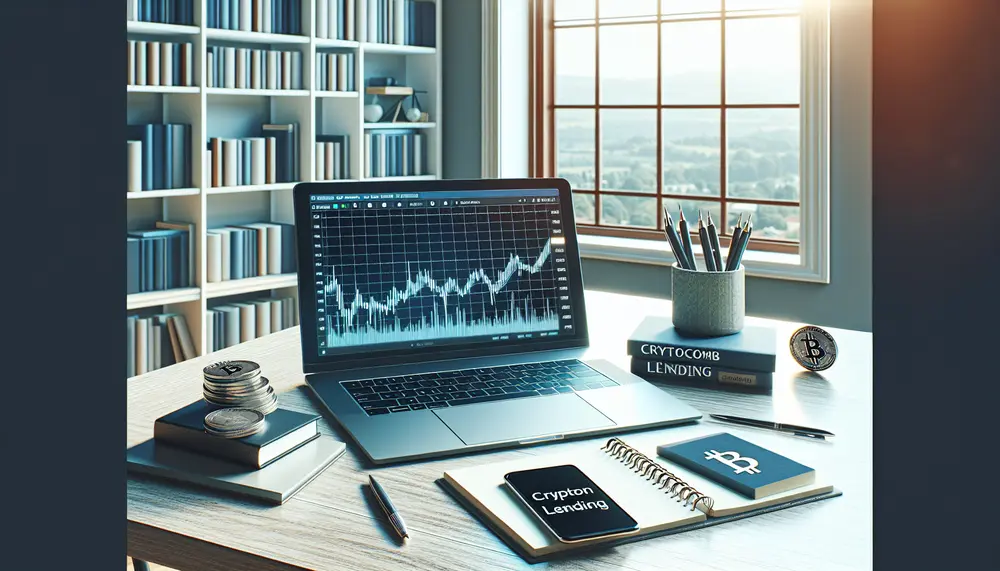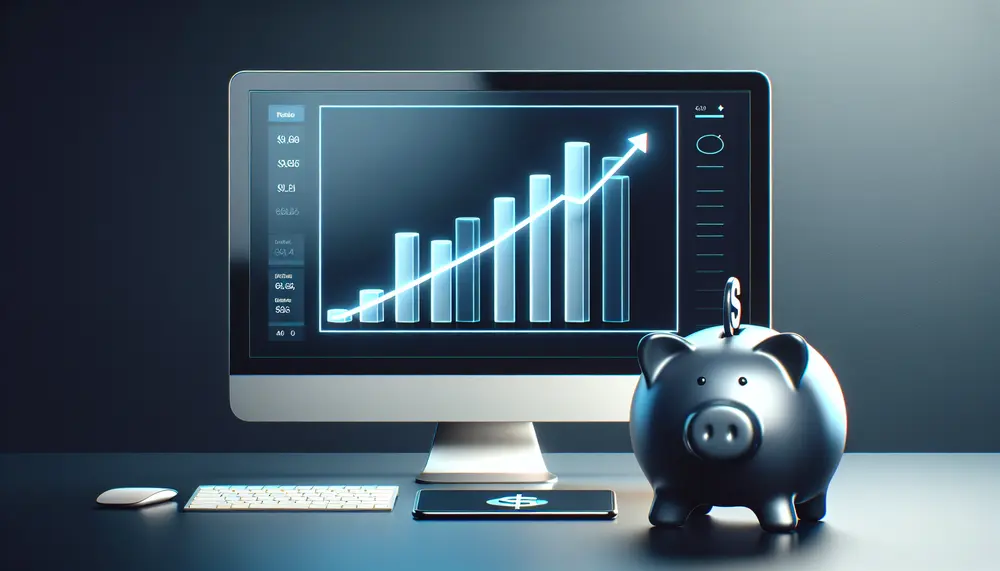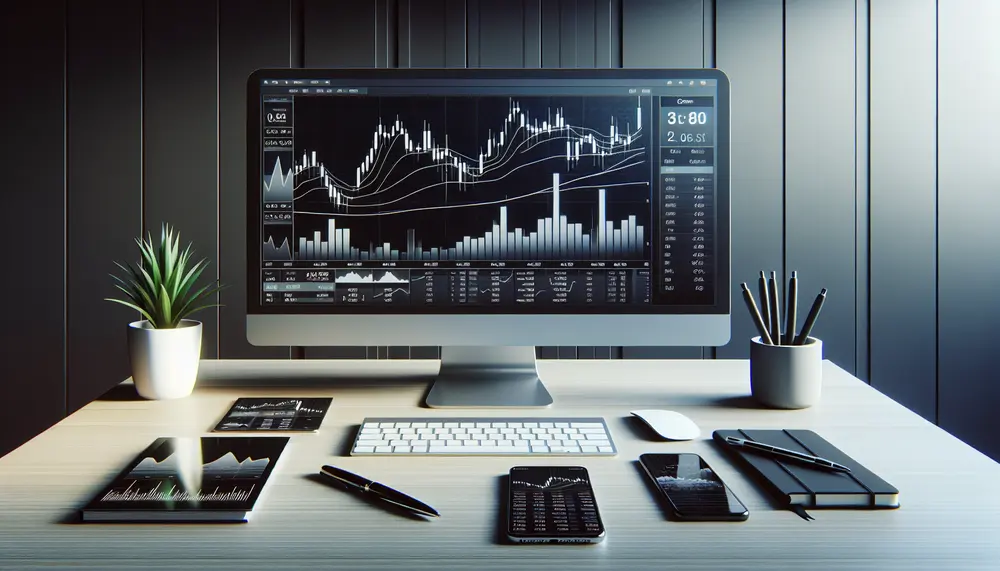Collateral
Collateral
Understanding Collateral in Trading
When entering the exciting world of trading, one term you'll often encounter is collateral. But what exactly does it mean? Simply put, collateral refers to assets that a trader offers as a type of insurance to their lender or broker.
Why is Collateral important?
In trading, collateral is vital because it mitigates risks. It's like a security deposit that a trader must provide. This deposit is in case the trader can't fulfil their deal. From the broker's perspective, having collateral offers some assurance. They know they get something back if a trade doesn't work out as planned.
Different Types of Collateral
You might think that collateral only pertains to money or cash. But that's not always the case. Collateral can take multiple forms, including physical assets, stocks, bonds, and more. Even future profits from a trade can function as collateral. The type of collateral accepted can vary based on the broker, the trade, and the trader.
How is Collateral Valued?
Each piece of collateral has its value. This value is often based on the market value of the asset. For example, if a trader uses a stock as collateral, the value of the collateral will align with that stock's current market price.
Risks and benefits of Using Collateral
Using collateral is a common practice in trading. It benefits the trader by allowing them access to better trading terms or higher leverages. However, it also carries risks. If a trader cannot meet their obligation, they might lose their collateral. Hence, it is always wise to consider both the potential rewards and risks when offering collateral.
Final Thoughts on Collateral
In the world of trading, understanding collateral is important. It can impact your trading terms and the risks you take on. Always weigh the benefits against the risks before deciding to use collateral in a trade.
Blog Posts with the term: Collateral

DeFi trading strategies involve leveraging smart contracts for activities like lending, borrowing, and trading without intermediaries, with popular methods including arbitrage, yield farming, staking, market making, and flash loans. These strategies offer advantages such as accessibility, transparency, lower costs, control...

KuCoin is a global cryptocurrency exchange known for its wide range of supported cryptocurrencies, advanced trading features, and strong security measures. It caters to both beginners and experienced traders with user-friendly interfaces, educational resources, various services like lending and staking,...

Crypto.com Lending is a service that allows cryptocurrency holders to lend their assets and earn interest, providing benefits such as passive income and portfolio diversification. The platform ensures security through blockchain technology, offers flexible lending terms, competitive rates, and includes...

LedgerX is a regulated financial platform established in 2013 that offers cryptocurrency derivatives such as options, futures, and swaps to both retail and institutional investors. It provides a secure trading environment with features like mini contracts and physical settlement, catering...

Levex, or leveraged trading, allows traders to increase market exposure and potential profits using borrowed funds but also amplifies risks. It requires a strong understanding of trading fundamentals and robust risk management strategies due to the heightened potential for both...

The Trezor Model One is a hardware wallet providing secure offline storage for cryptocurrency keys, designed to be user-friendly and durable. It features an OLED display, tactile buttons, lacks wireless connectivity for security reasons, and supports multiple cryptocurrencies with easy...

The article explains the concept of crypto margin trading, which involves borrowing funds to trade with more money than is currently in one's account. It discusses the mechanics of margin trading, the advantages and disadvantages, and the role of cryptocurrencies...

Bitcoin margin trading involves borrowing funds to increase buying power, amplifying both potential profits and losses. Traders must understand leverage ratios, maintain initial and maintenance margins in their accounts, and manage the high risks associated with cryptocurrency's volatility....

The article provides an overview of the crypto trading world, emphasizing its reliance on blockchain technology and how traders use exchanges to buy, sell, or exchange cryptocurrencies through spot or margin trading. It also discusses the importance of understanding fee...

Leverage in crypto trading allows traders to amplify their positions beyond their actual capital, potentially increasing returns but also amplifying losses due to market volatility. It involves using a margin account and requires careful management of the leverage ratio, with...

The article provides a comprehensive guide to trading cryptocurrencies on Binance, highlighting the platform's extensive tools and features for both beginners and experienced traders. It covers setting up an account, funding it with fiat or cryptocurrency, utilizing various trading markets...

Crypto.com is a comprehensive cryptocurrency platform offering trading, wallet services, and financial tools with an emphasis on security and user experience. It caters to both beginners and experienced traders through features like its exchange, Crypto Earn program, Visa card for...

DeFi trading apps enable users to trade cryptocurrencies without traditional financial institutions by leveraging blockchain technology for secure, transparent transactions. To get started, choose a reputable app, set up and fund a digital wallet, connect it to the DeFi app,...

AAVE is a leading DeFi lending platform that uses blockchain technology to offer transparent, peer-to-peer lending without intermediaries and includes an ecosystem of financial products on the Ethereum blockchain. It provides innovative features like flash loans and rate switching, empowering...


